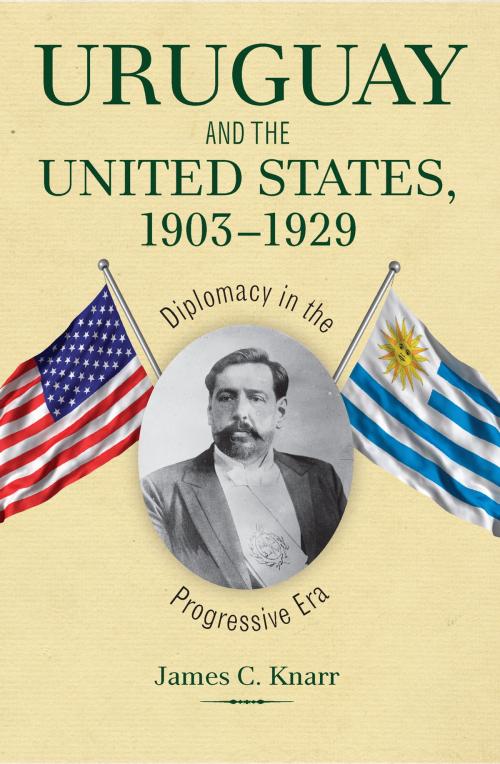Uruguay and the United States, 1903-1929
Diplomacy in the Progressive Era
Nonfiction, Social & Cultural Studies, Political Science, International, International Relations, History, Americas| Author: | James C. Knarr | ISBN: | 9781612776484 |
| Publisher: | The Kent State University Press | Publication: | December 21, 2011 |
| Imprint: | The Kent State University Press | Language: | English |
| Author: | James C. Knarr |
| ISBN: | 9781612776484 |
| Publisher: | The Kent State University Press |
| Publication: | December 21, 2011 |
| Imprint: | The Kent State University Press |
| Language: | English |
A comprehensive history of the relationship between the United States and reformist Uruguay
Despite its fascinating history, the attention paid by North American historians to Uruguay, a nation nestled in the corner of South America between Argentina and Brazil, is scant when compared to that shown to its neighbors. A major portion of the Uruguayan story revolves around the figure of two-time president José Batlle y Ordóñez, who was the nation’s dominant political figure between 1903 and 1929. Historians have credited Batlle with creating the hemisphere’s first welfare state. Under his guidance, Uruguay passed laws in the area of workers’ rights, unemployment compensation, public education, public works, and voting expansion. Ever ambitious, Batlle sought to make Uruguay the world’s “model country.”
Uruguay and the United States, 1903–1929 is the first study to look at the political, social, and commercial relationship between Batlle’s Uruguay and the Progressive Era United States. Using government records from Montevideo and Washington, as well as newspapers, the personal papers of many of the key actors, and a variety of other sources, author James Knarr examines how this ideological and harmonious relationship developed between Batllistas in Uruguay and Progressives in the United States.
Through his analysis of diplomatic, commercial, and cultural bonds, Knarr comprehensively explores how Batlle’s liberal ideas, partially built on U.S. concepts, resulted in a relationship that brought rewards for both the United States and Uruguay. This work is a must read for historians of U.S. foreign relations and Latin America.
A comprehensive history of the relationship between the United States and reformist Uruguay
Despite its fascinating history, the attention paid by North American historians to Uruguay, a nation nestled in the corner of South America between Argentina and Brazil, is scant when compared to that shown to its neighbors. A major portion of the Uruguayan story revolves around the figure of two-time president José Batlle y Ordóñez, who was the nation’s dominant political figure between 1903 and 1929. Historians have credited Batlle with creating the hemisphere’s first welfare state. Under his guidance, Uruguay passed laws in the area of workers’ rights, unemployment compensation, public education, public works, and voting expansion. Ever ambitious, Batlle sought to make Uruguay the world’s “model country.”
Uruguay and the United States, 1903–1929 is the first study to look at the political, social, and commercial relationship between Batlle’s Uruguay and the Progressive Era United States. Using government records from Montevideo and Washington, as well as newspapers, the personal papers of many of the key actors, and a variety of other sources, author James Knarr examines how this ideological and harmonious relationship developed between Batllistas in Uruguay and Progressives in the United States.
Through his analysis of diplomatic, commercial, and cultural bonds, Knarr comprehensively explores how Batlle’s liberal ideas, partially built on U.S. concepts, resulted in a relationship that brought rewards for both the United States and Uruguay. This work is a must read for historians of U.S. foreign relations and Latin America.















